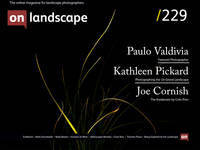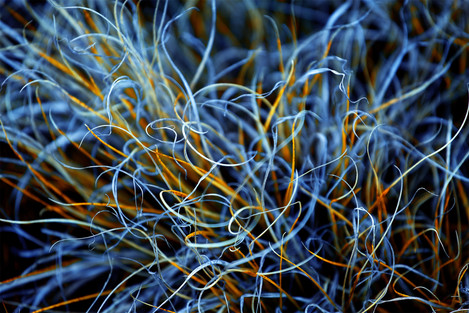Featured Photographer

Paulo Valdivia
Paulo is a landscape photographer based in Chile. His images explore the intersection between the human condition, subjective reality and the environment.

Michéla Griffith
In 2012 I paused by my local river and everything changed. I’ve moved away from what many expect photographs to be: my images deconstruct the literal and reimagine the subjective, reflecting the curiosity that water has inspired in my practice. Water has been my conduit: it has sharpened my vision, given me permission to experiment and continues to introduce me to new ways of seeing.
After talking to Paulo, and reflecting on the many interviews I’ve undertaken for On Landscape, it’s clear that for everyone inspired at an early age by a parent or relative, there will be others who come to photography later in life. It doesn’t really matter when you start making images or begin any new creative pursuit, so long as the timing is of your choosing, and you trust yourself. What comes across in our interview with Paulo is a love of country, in all senses of the word, and a love of lifelong learning. It’s also a good reminder to us all to focus on the process, not the outcome.
Would you like to start by telling readers a little about yourself – where you grew up, your education and early interests, and what that led you to do as a career?
I was brought up in the beautiful Araucanía region of southern Chile, in the sort of family that always maintained a close relationship with the wilderness. My father used to work at Nahuelbuta National Park in Araucanía region, which allowed me to spend the first six years of my life creating a deep bond with, and profound reverence for, this park. Such was the love of our family for Nahuelbuta N.P. that my parents decided, a few years later, to buy a few hectares of land in the neighbouring area of the park, building a log cabin a few months afterwards. I feel our cabin inevitably became another physical and emotional space among the many others that got seamlessly intertwined with the Park, the light, the scents of earth, the strangely beautiful geology and vegetation, and the poetic silence of this part of Araucanía region. All these spaces, and all that meaningful life created through a sustained and deep dialogue with nature, made considerable impacts on my psyche and determined the way I understood reality from a very early age. My unceasing interactions with the Park, as well as with other wilderness areas of southern Chile, also influenced my academic interests. I became a biologist and years later I moved to Edinburgh, Scotland, to obtain a PhD in environmental sciences.
You’ve credited growing up in the National Parks of Chile as being formative. For those who haven’t (yet) visited, what would you like us to know about the country and its natural areas?
I’m not surprised when I’ve talked to people, especially from abroad, about Chile’s geography and biodiversity, when they immediately recall ‘Torres del Paine National Park’, in Patagonia.


